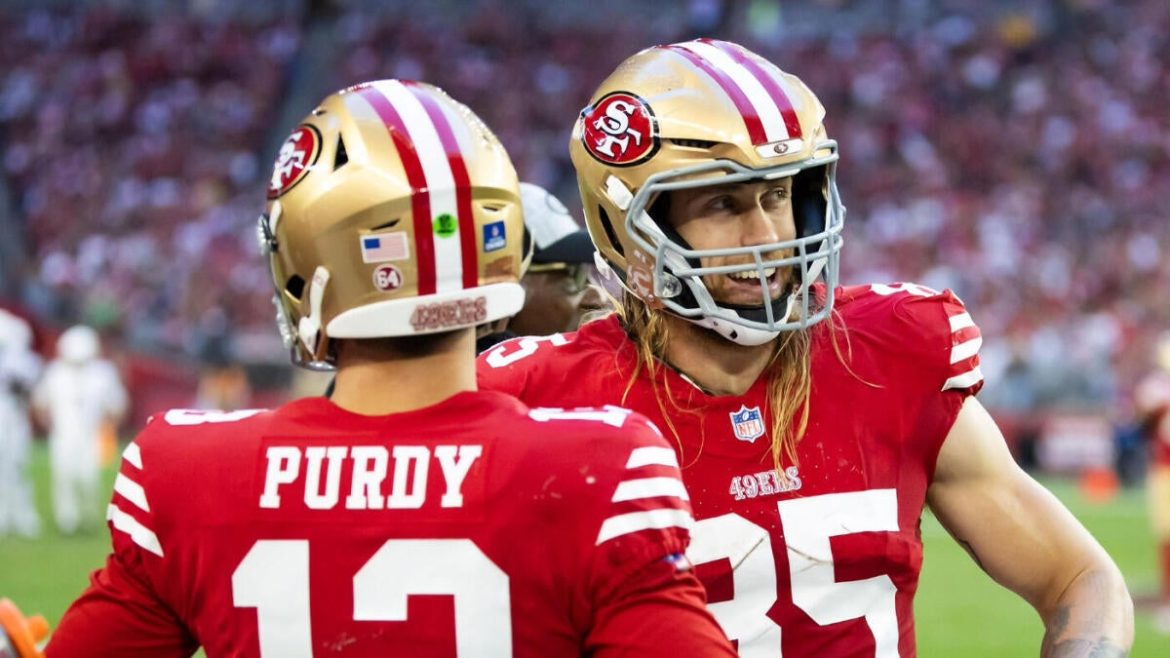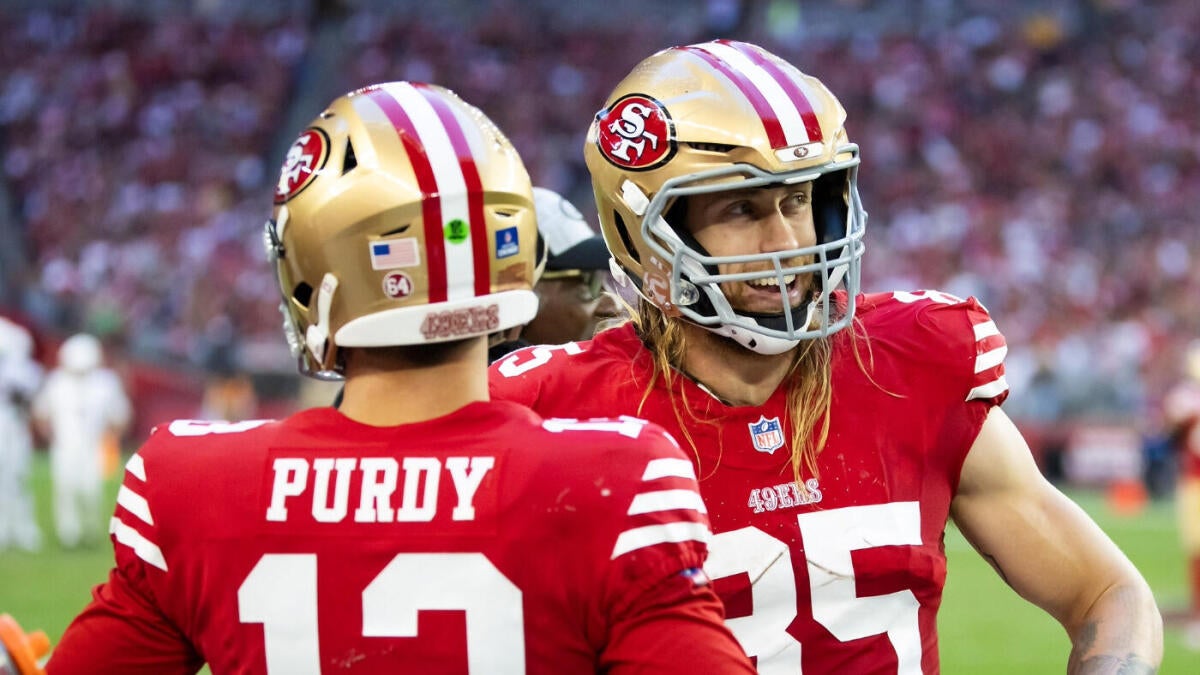The Brock Purdy Contract Extension: Implications and Perspectives within the 49ers Organization
The San Francisco 49ers recently made headline-grabbing decisions by securing major contract extensions for pivotal players, most notably Brock Purdy, the team’s young quarterback. His five-year, $265 million deal, annualized at $53 million, immediately positioned him as one of the NFL’s highest-paid quarterbacks. This figure starkly contrasts his earlier modest earnings of just over $850,000 per year. This seismic financial leap, alongside similar substantial contracts for teammates like George Kittle and Fred Warner, has stirred robust discourse inside and outside the 49ers community.
Brock Purdy’s Rise and the Contract Context
Brock Purdy entered the NFL as a relatively under-the-radar draft pick, making his rise and contract rewrite all the more remarkable. Initially, his salary reflected a rookie’s typical modest pay scale, which was in the sub-million-dollar range. However, his ascension to the starting quarterback role for a team with Super Bowl aspirations changed that equation entirely.
The 49ers’ commitment of $265 million over five years is a clear message not only of confidence in Purdy’s talent but also of their willingness to build the franchise around him. This deal places Purdy among the elite quarterbacks in terms of compensation, reflecting both his past performance and anticipated future trajectory.
George Kittle’s Role and Influence
Tight end George Kittle, himself freshly rewarded with a lucrative four-year, $76.4 million contract making him the NFL’s highest-paid tight end, plays a significant role in the internal narrative surrounding Purdy’s deal. Kittle’s relationship with Purdy is more than just teammateship; it’s a mentorship of sorts. He has been vocal about supporting Purdy amid external skepticism regarding the size of the contract.
Kittle’s humorous yet pointed remarks about Purdy needing to “buy everything” highlight the palpable awareness within the team about the financial disparity and the spotlight Purdy now occupies. This camaraderie and lighthearted pressure reinforce the team’s collective identity and underscore Kittle’s leadership role in fostering a supportive environment for the franchise quarterback.
Criticism and Defense Over the Contract Size
Despite the 49ers’ enthusiasm, the enormous investment in Purdy sparked criticism from some fans and analysts who question whether the five-year, $265 million contract truly reflects his value at this stage. Skepticism mainly hinges on Purdy’s relatively limited starting experience and concerns about consistency under pressure.
In response, both George Kittle and the 49ers’ management have publicly defended the deal. Kittle’s advocacy emphasizes how Purdy’s skill set, leadership, and growth trajectory justify the commitment. Meanwhile, team executives defend the financial strategy as a necessary move to stabilize the quarterback position and sustain the team’s championship aspirations.
Financial and Team Dynamics: Balancing Star Contracts
The 49ers’ approach to contract extensions this offseason reveals a broader strategy of locking in core talent to maintain competitive balance while navigating salary cap constraints. Alongside Purdy’s blockbuster deal, Fred Warner’s three-year, $63 million contract extension as the highest-paid linebacker, and Kittle’s own lucrative deal, the team is clearly investing in a nucleus of star players.
However, reports hint at potential pitfalls in Purdy’s contract structure, suggesting possible “fatal flaws” that require careful salary cap management. Moreover, ongoing speculation about the futures of other key players, including Kittle himself, reflects the complex balancing act teams face—reconciling superstar pay demands with roster depth and financial sustainability.
The Wider Impact: Future Expectations and Team Identity
Purdy’s contract is not just about dollars and years; it signifies the 49ers’ vision for their future. With Purdy as the presumed franchise quarterback, the team’s 2025 and subsequent seasons’ success seemingly hinge on his continued growth and leadership. This emphasis ties directly into how teammates like Kittle rally around Purdy, signaling collective confidence even amid external questions.
Moreover, the extension serves a morale-boosting function internally, signaling to rookies and role players that excellence and team leadership are richly rewarded. This culture of recognizing and compensating key contributors can be vital for maintaining competitive drive and a winning mindset.
Conclusion: A Bold Bet on Potential and Unity
San Francisco’s decision to tie its future so heavily to Brock Purdy epitomizes a bold organizational bet on potential, growth, and internal chemistry. The massive $265 million contract not only elevates Purdy into elite financial status but also spotlights the complex interplay of talent, market dynamics, and team culture.
George Kittle’s embrace of Purdy’s new role, including his light-hearted demands and staunch defense against critics, symbolizes the 49ers’ collective commitment to this new chapter. While the deal’s size invites scrutiny, it also embodies the confidence the franchise has in Purdy’s ability to lead them to sustained success.
Ultimately, this is a story of transformation—of a young player rising from modest beginnings to franchise centerpiece, and of a team leveraging contracts and camaraderie to forge its identity and ambitions in the NFL’s competitive landscape. The next chapters will tell whether this investment pays off on the field, but the message of belief and support from leaders like George Kittle is unmistakably clear: the 49ers are all in on Brock Purdy.





